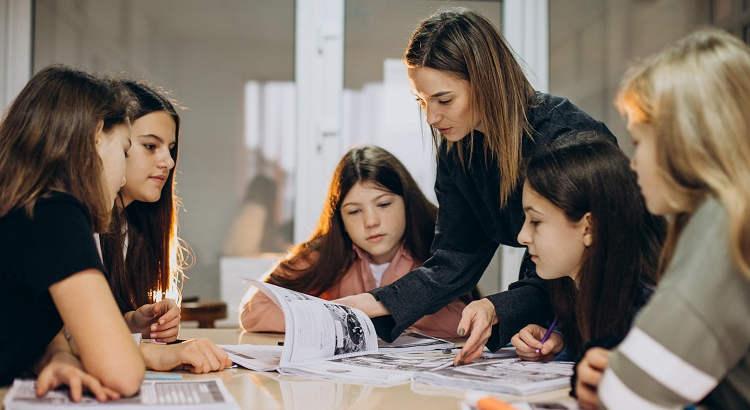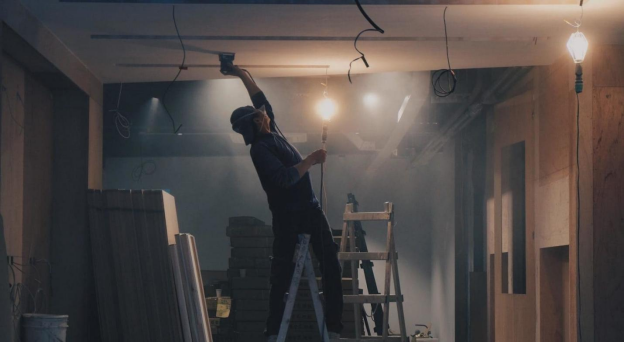A report carried out in Spain and called "Education in the shadows in Spain: how classes are becoming a basic necessity", was published this week by the National Institute of Statistics and shows the cultural changes in what is called shadow education or private classes that parents pay for the best academic, social or intellectual performance of their children. The figures are surprising, millions of euros in payments and above all the only non-essential economic activity that instead of decreasing in times of crisis increased and continues to spread.
They began as a luxury good and it was classified as such, families who wanted reinforcement in some area for their children in academic performance, to reinforce the knowledge of school education. However, in the case of Spain after the recession that affected to the country since 2008, the payment for these services increased instead of being reduced. From 2008 to 2017 it tripled to reach 732 million euros per year. A first novelty is that it is not an exclusive consumption of the most affluent families, but that the greatest growth occurred in the middle and lower classes.
Another interesting fact is that during the same period, families made a reduction in expenses for food, restaurants, clothing or entertainment. The response of several families interviewed agrees that the priority of parents is the education of their children and make them more competent for the years to come, in a society that is increasingly competitive and demanding.
On the other hand, some experts consider that this accelerated growth in the consumption of private classes is worrying because it can increase the gaps in education between those who can pay for reinforcements of any kind for their children, compared to those who do not have the resources to do so. . The author of the study, Juan Manuel Moreno, stated in an interview that “Governors have to implement far-reaching policies to respond to this increasing search for non-formal education. Families have very high expectations and see training as key to social advancement, so they spend what is necessary”.
And it is that the Spanish figures that can be very similar if done in Colombia are the following: in 2006, 17% of students between 6 and 18 years old received some type of private class. In 2015 it had reached 30% and by 2019 it was close to 35%. 24% of primary school students have private classes in science and mathematics, not counting the growing number of private classes in a second language, especially English.

The study identifies that in primary school classes focus on reinforcing what students are not learning in class, but in secondary school there is greater awareness of preparing students for national placement tests or for university entrance.
Pandemic increased the phenomenon
The remote classes to which millions of students were exposed with the covid-19 pandemic caused the quality of education to decline in most countries. In others, there were even high levels of desertion that were compensated by the parents' decision to pay for private classes for their children. It appeared in all social classes, including neighbors who hired a teacher to give classes to their children in the places of residence and in the same way the modality of study at home increased. Families that withdraw their children from formal school, offer them training at home with private classes and then seek to standardize the grades they did at home with exams.
I went back in time and found this @LZZYHALE. You sure know how to make someone's day. 😩🤗❤️ https://t.co/0AySyhb3BA
— ItsMeGina🏳️🌈👽🍪💀 Tue Jun 15 23:44:03 +0000 2021
fewer and fewer children
A few weeks ago there was a stir over the statements of Pope Francis who stated that the new generations do not want to have children but rather pets and educate them as children. Despite all the discomfort generated by the statement, it is not far from reality, in Europe and America every time there are fewer children, the reduction in the rate of children per household in several countries is close to one, when thirty years ago the average I was in four. This has generated two changes, on the one hand, that those who decide not to have children are investing a lot in their pets, whether in schools, schools or country houses to spend their free time, walkers and tutors.
The increase in consumption for the benefit of pets grows rapidly. But, on the other hand, those who decide to have children usually have only one and that leads them to invest much more in training and care. 20 or 30 years ago for parents with 4 or 5 children it was almost impossible to think of personalized education, but today parents want their only child to receive the best education and in addition to school expenses, they spend a significant budget on private classes from basic areas, second language, arts, music or sports activities in search of finding or enhancing a talent of their children.
A global growth business
A ReportLinker report indicates that it is estimated that by 2027, 218 billion dollars will be spent on the planet in private tutoring, that is, the entire gross domestic product of a country like Chile and close to that of Colombia. The same study indicates that in the United Kingdom, school students receiving private lessons increased from 27% in 2005 to 41% in 2019 and in Germany from 27% in 2000 to 50% in 2017.
Many teachers are seeing private classes as their first source of income, which is logical given the growing number of students in schools, low birth rates and therefore the low formal hiring of teachers. A teacher of languages, art, mathematics can generate his monthly income based on tutoring and extra class work.
A situation that for some is worrying because of the inequalities and exclusion that it can generate, or also because of the pressure and stress that children receive, but on the other hand it becomes an opportunity for educators and for the growth of the economy or the skills enhancement. A debate that begins and that it would be important to know or develop studies on the same is countries like ours.
*Education Specialist




